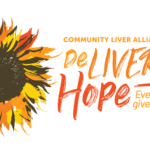Recovering from addiction isn’t just about stopping drug or alcohol use—it’s about building a new, healthier life. While detox and inpatient rehab may serve as the first steps, long-term success often depends on what comes next. That’s where outpatient treatment and aftercare come in.
These two components work hand-in-hand to support people in recovery, helping them maintain sobriety, rebuild relationships, and develop the tools they need for lasting change. Let’s explore how combining outpatient treatment and aftercare improves outcomes and why this approach may be the most effective path to sustained recovery.
What Is Outpatient Treatment?
Outpatient treatment provides structured support while allowing individuals to live at home. It’s ideal for people who have completed inpatient rehab or those with mild to moderate substance use disorders who don’t require 24-hour supervision.
Common features of outpatient programs include:
- Individual and group therapy
- Cognitive Behavioral Therapy (CBT)
- Relapse prevention planning
- Life skills training
- Medication-assisted treatment (MAT) when necessary
There are different levels of outpatient care, including standard outpatient programs (OP), intensive outpatient programs (IOP), and partial hospitalization programs (PHP), offering varying degrees of time commitment and support.
What Is Aftercare?
Aftercare refers to the ongoing support a person receives after completing a formal treatment program. It helps individuals transition back into everyday life while maintaining the progress they made in treatment.
Aftercare can include:
- Sober living homes
- 12-step programs or other support groups
- Ongoing therapy or counseling
- Regular check-ins with a case manager
- Recovery coaching or mentorship
- Virtual support and wellness apps
Aftercare focuses on long-term stability and helps reduce the risk of relapse by providing consistent support and connection.
Why Combining Both Leads to Better Outcomes
1. Outpatient Treatment Builds the Foundation
Outpatient care allows individuals to continue treatment while working, attending school, or caring for family. It teaches essential coping skills, helps identify triggers, and provides professional support during early recovery.
According to the Substance Abuse and Mental Health Services Administration (SAMHSA), outpatient programs have been shown to improve recovery rates when they include structured therapy, peer support, and regular check-ins [1].
By offering flexibility, outpatient care supports real-life application of skills. Clients can practice what they learn in therapy in real-world settings and return to discuss challenges with their care team.
2. Aftercare Sustains Recovery Beyond Treatment
Even after completing outpatient treatment, the risk of relapse remains. In fact, research suggests that 40-60% of people in recovery may relapse at some point [2].
That’s where aftercare steps in. Regular support—whether through weekly meetings, sober housing, or ongoing counseling—creates accountability and reduces isolation.
Long-term engagement in aftercare is strongly linked to better recovery outcomes. A study in the Journal of Substance Abuse Treatment found that people who participated in continuing care for at least 12 months were significantly more likely to stay sober [3].
How They Work Together
1. Seamless Transition from Treatment to Real Life
Combining outpatient treatment and aftercare ensures there’s no sudden drop-off in support. It creates a bridge between structured care and independent living.
This continuity is crucial during the first year of recovery, which is often the most vulnerable time. Outpatient programs address immediate needs, while aftercare supports long-term adjustment and personal growth.
2. Greater Personalization
Everyone’s recovery journey is different. By combining outpatient treatment with aftercare, individuals can personalize their recovery plan to fit their needs, lifestyle, and goals.
For example:
- A single parent may choose evening outpatient sessions followed by virtual aftercare support.
- A young adult returning to college might attend daytime IOP and join a weekly campus recovery group.
This layered approach gives people more tools and more freedom to build the life they want in recovery.
3. Stronger Relapse Prevention
Outpatient care teaches strategies like identifying triggers, managing stress, and building healthy routines. Aftercare reinforces these lessons through regular check-ins, peer support, and encouragement.
Over time, these combined efforts strengthen resilience. If someone does relapse, they have a support network already in place to help them get back on track quickly.
Real-Life Example
Consider “Lisa,” a 28-year-old woman recovering from alcohol addiction. She completes a 30-day residential program and transitions to an intensive outpatient program (IOP) three days a week.
During outpatient care, Lisa learns how to manage anxiety without drinking. She builds new friendships and begins volunteering. After graduating from the IOP, she moves into a sober living house and continues weekly therapy.
Her aftercare plan includes:
- A weekly women’s recovery group
- Bi-weekly check-ins with a recovery coach
- Mindfulness and fitness classes
By combining outpatient treatment with aftercare, Lisa stays accountable, continues to grow, and avoids the isolation that once triggered her drinking. A year later, she celebrates 12 months of sobriety.
The Science Behind It
Higher Retention Rates
A study by McKay et al. (2019) found that individuals who transitioned from outpatient to aftercare were 33% more likely to complete a full year of continuous recovery compared to those without aftercare plans [4].
Improved Emotional Health
Ongoing therapy and group support reduce symptoms of depression and anxiety, both of which are major relapse triggers. According to the National Institute on Drug Abuse, integrated behavioral health services—including continued outpatient care—can reduce relapse and improve quality of life [5].
Conclusion: A Holistic Approach That Works
Recovery doesn’t end when treatment does. True, lasting recovery happens day by day—and combining outpatient treatment with aftercare creates a long-term, sustainable support system.
This approach empowers individuals to heal not just physically, but emotionally, socially, and spiritually. It offers flexibility, accountability, and connection—all essential ingredients for meaningful recovery.
If you or someone you love is exploring treatment options, consider this combination approach. It may just be the key to a stronger, more stable, and more fulfilling life in recovery.
References
[1] SAMHSA. (2020). Outpatient and Intensive Outpatient Treatment. Retrieved from https://www.samhsa.gov
[2] National Institute on Drug Abuse. (2023). DrugFacts: Treatment Approaches for Drug Addiction. Retrieved from https://nida.nih.gov
[3] McKay, J.R., Lynch, K.G., et al. (2014). Continuing care research: What we have learned and what we need to know. Journal of Substance Abuse Treatment, 36(2), 131–145.
[4] McKay, J.R., Van Horn, D., et al. (2019). Extended continuing care for alcohol and drug use disorders: Evidence-based approaches. Current Psychiatry Reports, 21(7), 54.
[5] National Institute on Drug Abuse. (2020). The Science of Drug Use and Addiction. Retrieved from https://nida.nih.gov
Throughout the year, our writers feature fresh, in-depth, and relevant information for our audience of 40,000+ healthcare leaders and professionals. As a healthcare business publication, we cover and cherish our relationship with the entire health care industry including administrators, nurses, physicians, physical therapists, pharmacists, and more. We cover a broad spectrum from hospitals to medical offices to outpatient services to eye surgery centers to university settings. We focus on rehabilitation, nursing homes, home care, hospice as well as men’s health, women’s heath, and pediatrics.
Disclaimer: The content on this site is for general informational purposes only and is not intended as medical, legal, or financial advice. No content published here should be construed as a substitute for professional advice, diagnosis, or treatment. Always consult with a qualified healthcare or legal professional regarding your specific needs.
See our full disclaimer for more details.







